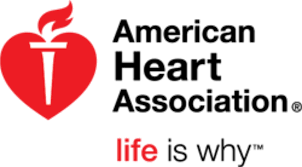Basic Life Support (BLS) and Advanced Cardiovascular Life Support (ACLS) training courses for the month of December in Port Harcourt, Rivers State have been rescheduled to the following dates:
December:
Date: 17th - 19th
Time: 9.00am
The ASHI and AHA’s BLS course trains participants to promptly recognize several life-threatening emergencies, give high-quality chest compressions, deliver appropriate ventilations and provide early use of an AED. While the ACLS course builds on the foundation of lifesaving BLS skills, emphasizing the importance of preventing cardiac arrest, early and continuous high-quality CPR, and high-performing teams. The courses reflects science and education from the 2020 American Heart Association Guidelines for CPR and Emergency Cardiovascular Care (ECC).
Who should take this course?
The BLS Course is designed for healthcare professionals and other personnel who need to know how to perform CPR and other basic cardiovascular life support skills in a wide variety of in-facility and prehospital settings.
The ACLS is for healthcare professionals who either direct or participate in the management of cardiopulmonary arrest or other cardiovascular emergencies and for personnel in emergency response
Basic Life Support (BLS) Course Options
High-quality CPR for adults, children, and infants
The AHA Chain of Survival, specifically the BLS components
Important early use of an AED
Effective ventilations using a barrier device
Importance of teams in multirescuer resuscitation and performance as an effective team member during multirescuer CPR
Relief of foreign-body airway obstruction (choking) for adults and infants

Advanced Cardiovascular Life Support Course Options
Define systems of care
Apply the BLS, Primary, and Secondary Assessments sequence for a systematic evaluation of adult patients
Discuss how the use of a rapid response team (RRT) or medical emergency team (MET) may improve patient outcomes
Discuss early recognition and management of Acute Coronary Syndrome (ACS), including appropriate disposition
Discuss early recognition and management of stroke, including appropriate disposition
Recognize bradycardias and tachycardias that may result in cardiac arrest or complicate resuscitation outcome
Perform early management of bradycardias and tachycardias that may result in cardiac arrest or complicate resuscitation outcome
Model effective communication as a member or leader of a high-performance team
Recognize the impact of team dynamics on overall team performance
Recognize respiratory arrest
Perform early management of respiratory arrest
Recognize cardiac arrest
Perform prompt, high-quality BLS including prioritizing early chest compressions and integrating early automated external defibrillator (AED) use
Perform early management of cardiac arrest until termination of resuscitation or transfer of care, including immediate post–cardiac arrest care
Evaluate resuscitative efforts during a cardiac arrest through continuous assessment of CPR quality, monitoring the patient’s physiologic response, and delivering real-time feedback to the team
Ready to take a Basic Life Support (BLS) and Advanced Cardiovascular Life Support (ACLS) class?
You can take a full classroom course
.jpg)


